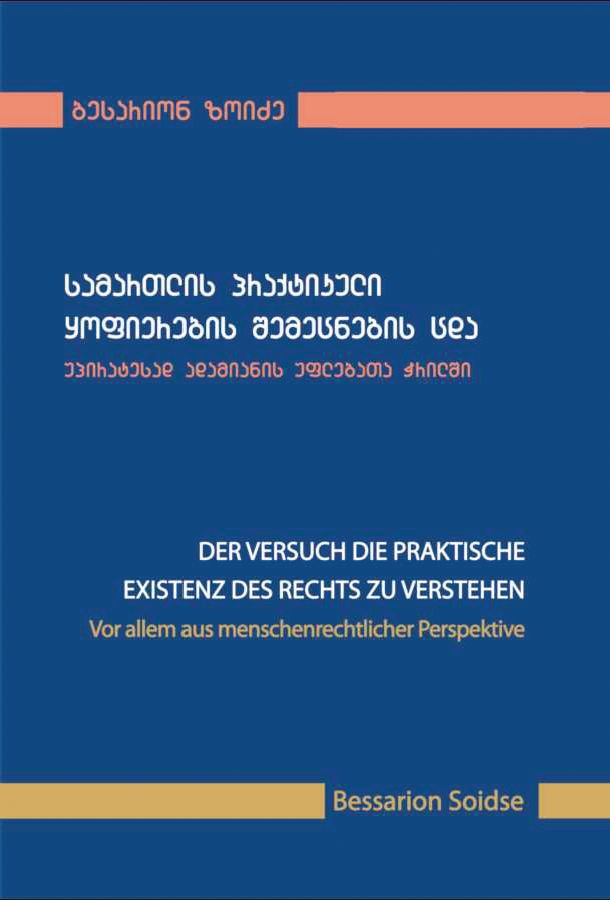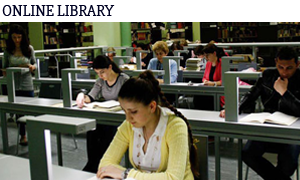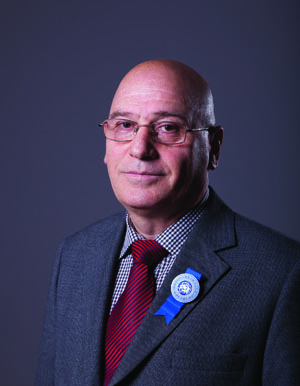
FACULTY OF LAW
Cognitive Aspects of the Practical Existence of Law
In Georgia there are few, if any, studies that explore the philosophical or psychological aspects of law. A recent publication by a TSU Professor of Law is thus a milestone event in the development of Georgian jurisprudence. The main topic of the work addresses the individual and the law.
Besarion Zoidze is Full Professor at the TSU Faculty of Law, with a PhD in Law. He has completed a 250-page book uniting 93 essays, entitled “For the Cognition of the Practical Existence of Law: Primarily in the Context of Human Rights”. It was published by the TSU Publishing House in 2013. “Mr. Zoidze’s research seeks answers to fundamental issues of law and, generally, to human social coexistence. It prompts us to ask new questions rather than to fall under the influence of already existing answers, without unleashing any criticism,” said the Editor of the book, Professor Giorgi Khubua.
 The author described why he wrote the book. “I was constantly asking myself how it could happen that we failed to create a state appropriate for the dignity of our history. Among numerous reasons, I identified the conflict of values between society and the state. It is extremely regretful that the factor of mutual alienation still persists today between the individual and the state, and both are contributing to it, pointing fingers at each other when conflicts arise. This alienation cannot be removed unless we stop looking for the reasons for failure in anyone but ourselves. However, those who have more power also have a greater obligation to overcome this alienation, and respectively, they have more reason to do it than I. When we all represent the subject of state interest, then the state has no desire to manipulate us. Therefore, my work focuses on the individual as a supreme value, with the legal world revolving around it. I wanted to show the nature of this movement and to promote the development of our society and the state.”
The author described why he wrote the book. “I was constantly asking myself how it could happen that we failed to create a state appropriate for the dignity of our history. Among numerous reasons, I identified the conflict of values between society and the state. It is extremely regretful that the factor of mutual alienation still persists today between the individual and the state, and both are contributing to it, pointing fingers at each other when conflicts arise. This alienation cannot be removed unless we stop looking for the reasons for failure in anyone but ourselves. However, those who have more power also have a greater obligation to overcome this alienation, and respectively, they have more reason to do it than I. When we all represent the subject of state interest, then the state has no desire to manipulate us. Therefore, my work focuses on the individual as a supreme value, with the legal world revolving around it. I wanted to show the nature of this movement and to promote the development of our society and the state.”
Essays include issues such as: What a Person May Hope for--Law as the Negation of the Negation; The Distinction between Ethical and Legal Obligations (with respect to Kant); The Relationship between an Individual and the State; Legal Cynicism; Legal Nihilism; Freedom in the Framework of the Law (with respect to Kant); Causes and Effects of the Implementation of Law; On the Implementation of Rights in Relation to Ethics; Relationship of Conscious and Unconscious in Law (with respect to Freud); On the Dual Nature of Enforcement in Law; Aspects of Mind and Free Will in Law (criticism of positivism under Hayek’s influence); On Eternal Values in Law beyond Our Control; On the Alienation between Enforcement and Law; On Shock Therapy in Law; The Distribution of Legal Burdens between the State and an Individual; On Responsible Society; Kindness in the Framework of Law and Order, etc.
In an introductory essay the author says, “Immanuel Kant asks a question: What can a person hope for besides himself? The answer is: he may hope for society, social institutions and law. It means that our skills and abilities will define our existence, and their implementation depends on external values.” Besarion Zoidze also pays great attention to the role and place of civil society in the state, explaining that civil society is created by the most deserving people, who believe in the necessity of existence within such society. This is a society with high ethical and legal responsibilities uniting like-minded people. This is a society with high values, which acknowledges the elementary truth that only such society can ensure welfare for each person. “My individual legal status in such a society is organically connected with the legal state of this society. I know that my rights cannot exist without your and our rights. Therefore, I--as the owner--respect both your and our property… It means that our rights have a cause-effect relationship.”
Civil society is a group of people with a higher consciousness of the peaceful coexistence of interests within the state--a balanced order of kindness and justice. It unites public-spirited people, and the state sees society in each person--the individual’s voice is perceived as the voice of the entire society. In civil society there is no mutual alienation between society and the state like that which has unfortunately remained Georgia’s painful case until today.
The essays put special emphasis on the necessity of a fair judiciary. Civil society is unimaginable without a fair judiciary and there can be neither civil society nor the judiciary as an institution, when protection of rights is questioned. “First and foremost, it is essential to ensure the independence of an institution, and then to correctly define the interests, values and ways to achieve it. In the process of implementing great reforms, we frequently wonder what action to take. We have to reject ‘shock therapy’ and create social institutions through admitting a reasonable discomfort for people. This way we avoid alienation between institutions and people, and manage to achieve a peaceful coexistence… A person should be prepared to meet institutional reform and feel an urgency to implement it.”
Another element we may hope for is a fair judiciary, the foundation on which civil society and social institutions are built. If law is removed from this organic unity nothing will remain. “To hope for law, it simply needs to represent a value. Law is “value-able” when it is qualitatively capable to be a full member of other legal families, such as European law, in our case. For the last twenty years, the small nation of Georgia has been aspiring to match universally recognized legal values and to manage the harmonization of its laws. During this period Georgian law has changed fundamentally and has become closer to European law. But this is only one side of reality, called the ‘positive existence of law’… However, we can hope for law only when we respect and observe it. This requires a high legal consciousness as backbone of the legal culture. Without such an attitude there is neither civil society nor democratic social institutions.” We are equally obliged to act within legal frameworks; however, the authorities have a specific responsibility to be the creators and guardians of positive law.
According to the Justinian Code, to live honestly, to injure no one, and to give every man his due are all precepts of law and the core of a legal state. These values inspired Zoidze’s essays and now he offers them to readers, especially to youth. “I have not written these essays to dispense a legal education. My goal was to charge students with legal feelings, and particularly to fill them with a feeling of respect towards rights as an objective value. The basis to perceive this is to connect the existence of my right to the rights of others, because they are linked causatively. Therefore, I confirm that an individual is a right. It obliges all of us--the state, the society and individuals--to look at people as subjects having legal honesty. This is how we will become goals for each other, thus destroying the historical disease of mutual alienation. Actions will be determined by an elementary truth that tells each of us we are nothing without interrelations. This is a morally strong, fair and balanced relationship.”




